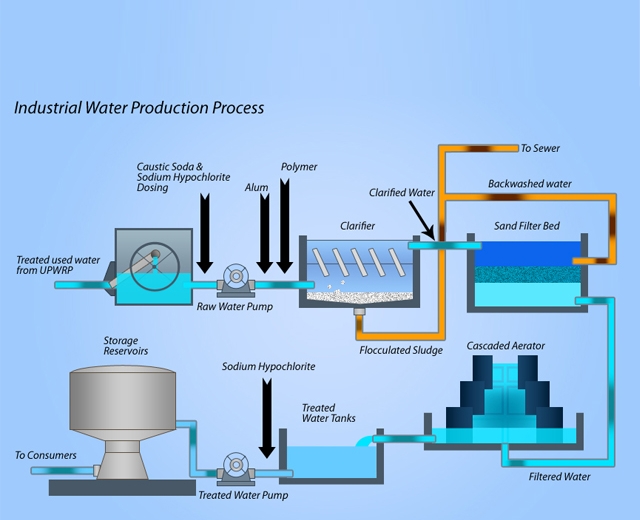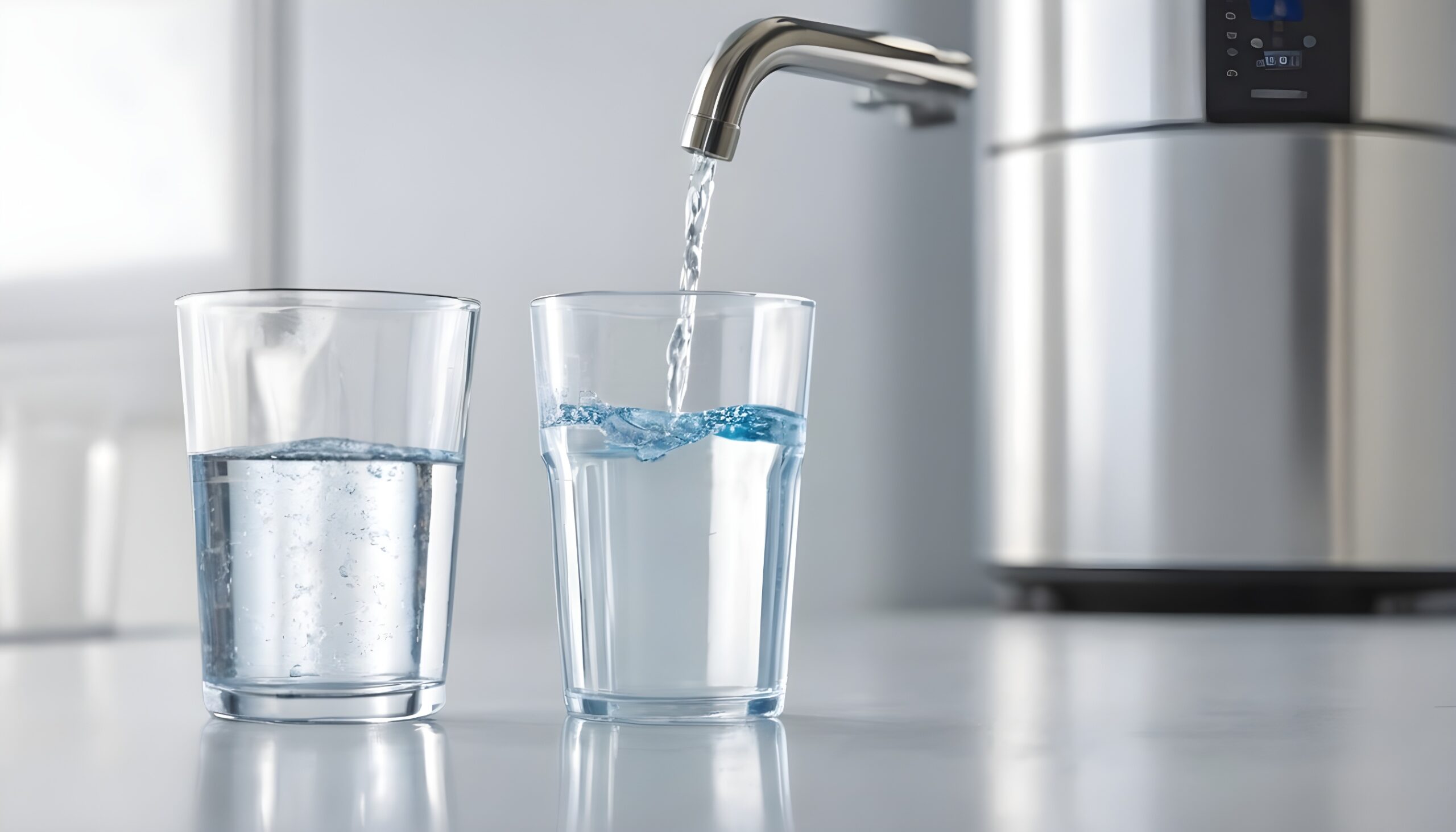The Ultimate Overview to Choosing the very best Water Purification System
The Ultimate Overview to Choosing the very best Water Purification System
Blog Article
Why a Water Purification System Is Necessary for Clean, Safe Water
Access to tidy, secure water is a fundamental human right and a foundation of public wellness. However, the existence of damaging pollutants such as pathogens, hefty metals, and chemical contaminants in our water supply increases major issues regarding wellness and well-being. A water filtration system stands as a vital remedy to minimize these threats, guaranteeing that individuals and communities can access risk-free drinking water. Recognizing the ins and outs of these systems and their various techniques is crucial, specifically as we consider the implications for health and wellness outcomes and ecological sustainability in our day-to-days live.
Importance of Clean Water
Access to tidy water is a fundamental need for human health and wellness and well-being. Infected water can lead to significant health concerns, including stomach ailments, cholera, and dysentery, specifically in susceptible populaces such as kids and the elderly.
Furthermore, clean water is crucial for cleanliness and hygiene techniques, which are crucial in avoiding the spread of infectious conditions. Appropriate water supports correct hygiene facilities, promoting a healthier environment. Additionally, accessibility to secure water affects socioeconomic aspects, as it allows communities to participate in agricultural and commercial tasks, ultimately adding to financial growth.
In many areas, the lack of clean water worsens destitution and inequality, additional preventing progress toward sustainable growth objectives. Making certain accessibility to clean water is not just a public health essential but likewise a foundation for social equity and financial growth. Efforts to enhance water top quality and framework have significant benefits, promoting much healthier communities and improving lifestyle.

Common Pollutants in Water
Ensuring the schedule of tidy water is weakened by numerous impurities that can endanger its security and high quality. The presence of pathogens, such as microorganisms, parasites, and viruses, positions substantial wellness threats, specifically in locations lacking appropriate hygiene. These microorganisms can bring about waterborne conditions, leading to extreme health problem and even fatality.
Chemical pollutants also present an essential concern. Heavy steels, consisting of lead, arsenic, and mercury, often go into water products with commercial discharges or corroded pipes. These materials can collect in the body in time, resulting in long-lasting health issues such as neurological damage and developing conditions.
In addition, agricultural drainage introduces chemicals and plant foods right into water supply, which can disrupt ecological communities and negatively influence human wellness. Nitrates, frequently located in plant foods, can trigger significant conditions like methemoglobinemia, particularly in infants.
Benefits of Water Filtration Equipments
Recognizing the essential demand for safe drinking water, water filtration systems offer a myriad of benefits that boost public wellness and environmental sustainability. Mostly, these systems properly get rid of unsafe pollutants, including microorganisms, infections, hefty metals, and chemicals, ensuring that the water consumed is without toxins and microorganisms. This decrease in contaminants dramatically lowers the risk of waterborne illness, promoting general area wellness.
In addition to health and wellness advantages, water filtration systems add to environmental sustainability by reducing dependence on mineral water, which frequently creates extreme plastic waste. By using a filtration advice system, houses can lower their carbon impact and add to an extra sustainable ecological community. In addition, these systems can improve the taste and odor of water, making it much more tasty for day-to-day consumption.

Different Sorts Of Purification Techniques

One usual method is reverse osmosis, which utilizes a semi-permeable membrane to separate water from dissolved solids and contaminants. This process properly minimizes pollutants, consisting of heavy metals and chemicals. One more commonly utilized technique is ultraviolet (UV) sanitation, which uses UV light to reduce the effects of microorganisms and infections, rendering them safe without the use of chemicals.
Activated carbon filtering is another prominent strategy, making use of carbon to adsorb organic compounds, chlorine, and undesirable smells, boosting taste and smell high quality. Purification, a process that entails boiling water and condensing the steam, successfully gets rid of impurities and minerals however may require even more energy contrasted to other approaches.
Ion exchange is typically used to soften water by replacing calcium and magnesium ions with salt or potassium ions. Each technique has its benefits and limitations, making it important to comprehend their functionalities and effectiveness in addressing particular water top quality problems - Water Purification System. Inevitably, choosing the suitable filtration approach is crucial for making sure tidy and risk-free alcohol consumption water
Picking the Right System
Picking an appropriate water purification system needs cautious factor to consider of various factors, including the specific contaminants existing in the supply of water, the volume of water required, and the preferred filtration technique. First, it is vital to perform a water high quality examination to recognize pollutants such as bacteria, heavy metals, or chemical toxins. This details will assist you in choosing a system that effectively targets those certain pollutants.
Next, analyze your family's everyday water usage to establish the system's ability. Equipments are readily available in different dimensions, from point-of-use filters for alcohol consumption water to whole-house systems that purify all water entering your home.
Moreover, consider the purification technique that ideal fits your needs. For example, reverse osmosis is very effective for eliminating a variety of pollutants, while UV filtration is superb for eliminating bacteria.
Final Thought
To read the article conclude, the execution of water filtration systems is vital for making certain access to clean and risk-free water. These systems properly remove dangerous contaminants, consequently lowering the risk of waterborne illness and improving public health. Additionally, they contribute to environmental sustainability by reducing reliance on bottled water. By understanding the relevance of tidy water and the benefits of different purification methods, areas can make informed decisions to secure their wellness and advertise socioeconomic stability.
Recognizing the critical demand for safe drinking water, water filtration systems use a myriad of advantages that enhance public health and wellness and environmental sustainability.In addition to wellness advantages, water purification systems add to ecological sustainability by lowering reliance on bottled water, which usually produces excessive plastic waste. Ultimately, the adoption of water purification systems is a proactive action toward making sure tidy, secure water for future generations while securing public wellness and the environment.
Choosing an ideal water filtration system calls for mindful factor to consider of numerous variables, consisting of the details pollutants present in the water supply, the quantity of water required, and the desired filtration method.In conclusion, the implementation of water filtration systems is important for guaranteeing accessibility to clean and risk-free water.
Report this page